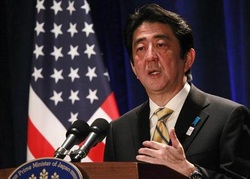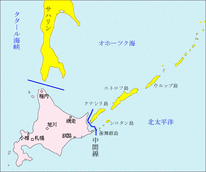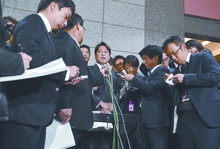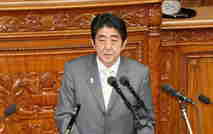 Source: asahi.com
Source: asahi.com Part of this suspicion has to deal with the Abe government’s definition of what constitutes “sacred ground” (a literal translation of the Japanese term 聖域) in relation to goods not covered by tariff exemptions (given that Abe had laid down as a pre-condition that Japan would not participate in any agreement that did not exempt “sacred grounds”). The government has been particularly coy on this issue, knowing full well that to suggest lifting all tariffs on rice, soy, wheat and fisheries would set off a wave of panic among rural LDP seats with the (justifiable) fear that rural industries would be overwhelmed by cheap imports of agricultural goods from countries such as the US, Canada, Australia, and Chile. The reassurances that tariff abolition is not required to join in negotiations was taken by JA to mean that tariff abolition will eventually be imposed on Japan and that Japan should therefore keep its distance. That would be fine if JA offered its own solution to the stagnation present within Japanese agriculture, but no such plan exists (farming involves hard labour coupled with serious overheads and no guarantee of returns – no wonder Japan’s youth aren’t all that interested in it as a career – Link: J), and that lack of an alternative speaks volumes about where JA’s interests lie and how hard it will fight to keep its monopoly on industry representation.
As for security ties, no real surprises there, mainly the re-affirmation of the importance of the US-Japan alliance to the Asia Pacific, a re-invigorated 2+2 agenda (more joint exercises on the way) and an agreement to go ahead with an application to lay the foundations for the building of Henoko military airport to replace Futenma (Link: J. Clearly Abe will not countenance any dissent from Okinawa on this question, and has put the plan firmly back on the table in exactly the same format as the previous LDP government. Calls for understanding will follow, no doubt). Moreover, Abe called China to task over the Senkaku Islands, explicitly stating that they are Japanese territory and that Japan will not allow any attempt to change that state of affairs. Abe was also quoted by the Washington Post as saying that China had a “deeply ingrained” need to dispute territory with Japan and other regional states (Link), a comment that initially sparked a demand from China that it be withdrawn (Link: J) before MOFA pointed out that Abe had been misquoted, and had in fact said that both “politicians and business leaders were aware of how deeply ingrained maritime issues were (presumably in the region)” (Link).
So Abe laid out Japan’s argument in detail for the US media, and did they pay attention? Partly, although as Okamura Jun noted, there weren’t too many US journalists in attendance at the bilingual Q & A at the CSIS last Friday (or else they were there but couldn’t be bothered asking questions) (Link). This is surprising, given that Japan is still the principal US ally in the Asia Pacific (sorry Oz, we’re doing pretty well, but we don’t have the same degree of technical expertise or personnel numbers, not to mention the fact that we don’t unilaterally allow the US to operate bases here), but it may be that domestic concerns have overtaken any focus on foreign affairs among the US media. Certainly a swathe of looming tax cuts (or sequestration) may ultimately affect how the US conducts its foreign policy (Link), and that has many a pundit talking (present company included).




 RSS Feed
RSS Feed